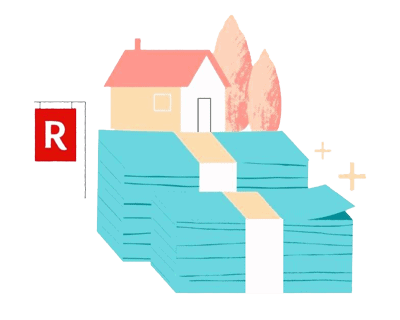 how to avoid loan modification scams" width="485" height="485" />
how to avoid loan modification scams" width="485" height="485" />  how to avoid loan modification scams" width="485" height="485" />
how to avoid loan modification scams" width="485" height="485" />
Loan modification scams have cost homeowners at least $90 million over the past four years, and a survey of consumers by NeighborWorks America found that four out of 10 consumers were not confident that they could avoid being victimized.
Many homeowners who owe more than their homes are worth or who have fallen behind on mortgage payments are looking for relief, but falling for a scam will only make things worse. Here are the top scams to look out for, and some tips for how to avoid them.
The scam artist poses as a counselor and tells you he can negotiate a deal with your lender to modify your loan or save your house — if you pay him a fee first. The fee may be called a processing fee or administrative fee. He may even tell you not to contact your lender, lawyer or housing counselor — that he’ll handle all details. He may even insist that you make all mortgage payments directly to him while he negotiates with the lender. Once you pay the fee, or a few mortgage payments, the scammer disappears with your money.


Some scammers may claim to be affiliated with, or approved by, the government, or they may ask you to pay high, upfront fees to “qualify” for government mortgage modification programs. The scammer’s company name and website may sound like a real government agency, but the website may end with .com or .net instead of .gov. You may also see terms like “federal,” “HAMP,” “MHA,” “HARP” or other words related to official U.S. government programs.
Contact your lender first. Your lender will be able to tell you whether you qualify for any government programs to prevent foreclosure or modify your loans. And you do not have to pay to benefit from these programs.
The scammer who may be called a forensic or mortgage loan “auditor” offers to review your mortgage loan documents to determine whether your lender complied with state and federal mortgage lending laws. The scammer will usually require that you pay a fee to start the process. The scammer may say you can use the audit report to avoid foreclosure, accelerate the loan modification process, reduce your loan principal or even cancel your loan.
There is no proof that a forensic loan audit can save your home from foreclosure, even if it’s conducted by a licensed, legitimate and trained auditor, mortgage professional or lawyer.
The scam artist, usually a lawyer, law firm or a marketing partner, will promise that they can force your lender to modify your loan. They will tell you that by joining other homeowners in a mass joinder lawsuit against a particular lender, you will be able to stop a foreclosure, reduce your loan balance or interest rate, receive monetary damages or even receive the title to your house free and clear. Mass joinder lawsuits can be used legitimately; but these lawyers are usually paid after the lawsuit is over, on a contingency basis. However, mass joinder lawsuit scammers will try to “sell” you participation in a lawsuit against your mortgage lender, claiming that you cannot participate in the lawsuit until you pay some type of fee.
The scam artist convinces you to sign documents for a “new loan modification” that will make your existing mortgage current. This is a trick. You actually just signed documents that surrender the title or deed of your house to the scam artist in exchange for a “rescue” loan. Thoroughly read any document before you sign it.
A scammer urges you to surrender the title or deed of your home as part of a deal that will let you stay in your home as a renter and then buy it back in a few years. He may tell you that surrendering the title will permit a borrower with a better credit rating to get new financing — and keep you from losing your home. However, the scammer may have no intention of ever selling the home back to you.
Here are three tips to avoid falling victim to any loan modification scam: